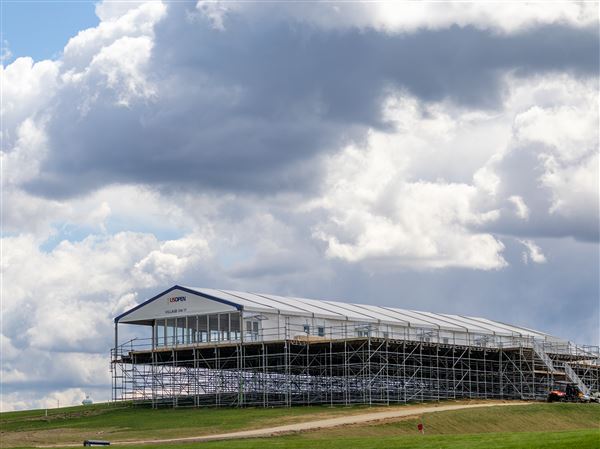Several local school districts planning for delayed starts yesterday had to cancel classes at the last minute when their buses broke down.
The problem, they say, is the new low-sulfur diesel fuel they're required to use under federal environmental standards that went into effect in October.
While burning more cleanly, the diesel fuel tends to congeal at low temperatures, they say, creating a molasses-like mixture that clogs filters and prevents the fuel from getting to the engine.
Gary Smelko of Guttman Oil Co. in Belle Vernon, which services dozens of local districts through the Allegheny Intermediate Unit, said five of its customers reported bus problems, but many others were affected, too.
"The whole industry has anticipated problems at these low temperatures," he said.
Under the new regulations, diesel fuel can have only 15 parts sulfur per million instead of 500 parts. One byproduct of the new processing method is paraffin wax, whose molecules tend to stick together in cold temperatures.
To avoid such problems, Mr. Smelko said, some school districts store their buses in garages if they can, while others use electric block heaters or start their buses up over cold weekends.
With students already filing out to bus stops in yesterday's sub-freezing temperatures, school districts from South Fayette to Hempfield Area, Elizabeth Forward to Plum, found their buses might start but then had little power.
Yesterday, all but one of the seven buses dispatched to pick up students in the South Fayette School District broke down, according to transportation director Greg Curl.
One bus traveled about a half mile before stalling, while others quit after 500 to 600 yards, forcing school officials to cancel classes while they and local police hurriedly set up emergency cones and flares around the disabled buses.
"First and foremost, our concern is for the safety of the children waiting for buses that don't show up," said South Fayette Superintendent Linda Hippert. The district announced yesterday afternoon that today's classes also had been cancelled.
Still, the situation is frustrating, she said, for school staff and for families who have to scramble to make child care arrangements.
"We hate to cancel school every time it's 10 degrees," she said.
In Hempfield Area School District, Westmoreland County, 26 of its 80 buses had problems, according to Pat Carnicella, transportation director.
"They were still running, but they couldn't get fuel into the engine quick enough," he said. The district quickly canceled classes for the day.
Plum Boro School District faced a similar dilemma, said district spokeswoman Dawn Check. There, the thickened fuel made starting the buses hard.
Heeding yesterday's lesson, Plum by yesterday afternoon had canceled today's classes to prevent students from standing out in the cold this morning, waiting for their rides.
David Sunstein, president of Pennsylvania Coach Lines, which contracts with 12 southwestern Pennsylvania school districts to provide bus service, said the company was recommending to its districts that they not run buses yesterday because of the fuel problems -- and they may do the same today.
"This is a very widespread problem, and there is no solution with the additives we currently have," Mr. Sunstein said.
John Millett, a spokesman for the U.S. Environmental Protection Agency, said yesterday he had not heard about temperature-related low-sulfur diesel fuel problems.
He added that "sometimes there is a bad batch of fuel, so that may be what's going on."
But local officials expressed doubt that it was a bad batch of fuel because so many school districts, using different suppliers, were affected.
In the face of sustained subfreezing temperatures, the residents of 13 states used a record amount of electricity yesterday to keep warm.
PJM Interconnect, which operates the electric grid that stretches from Illinois to New Jersey and includes Pennsylvania, said the demand for electricity exceeded 112,500 megawatts yesterday morning. The previous record for winter use was 110,414 megawatts, set on Dec. 14, 2005.
Spokeswoman Paula DuPont-Kitt said the peak demand last February on PJM's system was 86,000 megawatts.
Duquesne Light Co.'s winter record was set two months ago, on Dec. 7, when demand hit 2,223 megawatts. But the company and PJM said usage could have hit new records overnight when temperatures fell.
On the natural gas front, Dominion Peoples spokeswoman Denise Hughes said that Sunday, when the average temperature was 5 degrees, the company's 357,000 Pennsylvania customers used 530 million cubic feet of gas.
On the coldest day of last year, Feb. 18, when the average temperature was 9 degrees, users warmed themselves with 465 million cubic feet of gas. The single-day record was set on Jan. 18, 1994, with the consumption of 700 million cubic feet of gas on a day when the temperature never rose above zero.
First Published: February 6, 2007, 5:00 a.m.
















